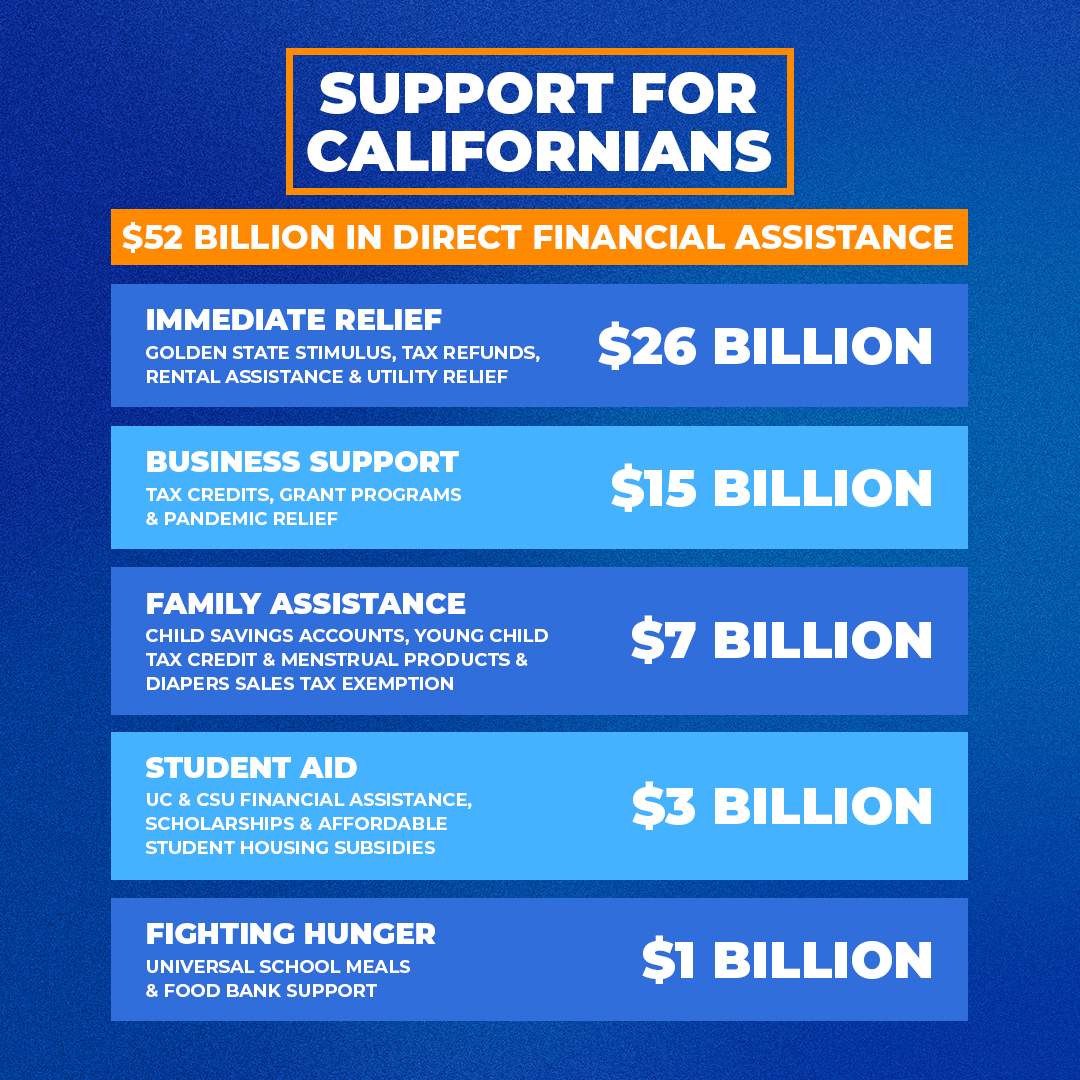Sacramento, CA…With new figures showing that California’s nation-leading utility assistance programs distributed $1.4 billion to support upwards of 2.2 million struggling households during the pandemic, Governor Gavin Newsom announced that another $1.4 billion is set to go out before the end of the year to cover overdue utility bills.
The additional $1.4 billion that Governor Newsom and the Legislature allocated in this year’s budget will be distributed by year’s end to support Californians who are still struggling to pay the bills. $1.2 billion will address residential electric utility arrearages through the Department of Community Services and Development to mitigate the outstanding debt leading to increased utility rates, and $200 million will address residential water and wastewater arrearages – complementing $116 million in federal funding for water and wastewater arrearages.
“No other state in America did as much for those struggling during the pandemic than California, with tens of billions of dollars for stimulus checks, small business relief, and past-due rent and utility bills to help Californians. We got $1.4 billion out the door to help 2.2 million families with overdue utility bills and we’re sending another $1.4 billion to support those who are still struggling amid rising costs,” said Governor Newsom.
This is an important part of Governor Newsom’s financial relief package to help support Californians who are dealing with higher costs right now:
This builds upon last year’s Golden State Stimulus, which distributed $9 billion to millions of California families, and the billions that went to help Californians pay their rent, cover overdue utility bills and support small businesses.
For the utility relief that went out already:
The Department of Community Services and Development provided assistance for electric and gas utility bills for more than 1.4 million households and commercial customers, distributing $989 million throughout the pandemic.
The State Water Resources Control Board covered unpaid water bills for more than 800,000 residential and commercial customers, distributing $435 million in just 10 months for debt accrued during the pandemic.
###



